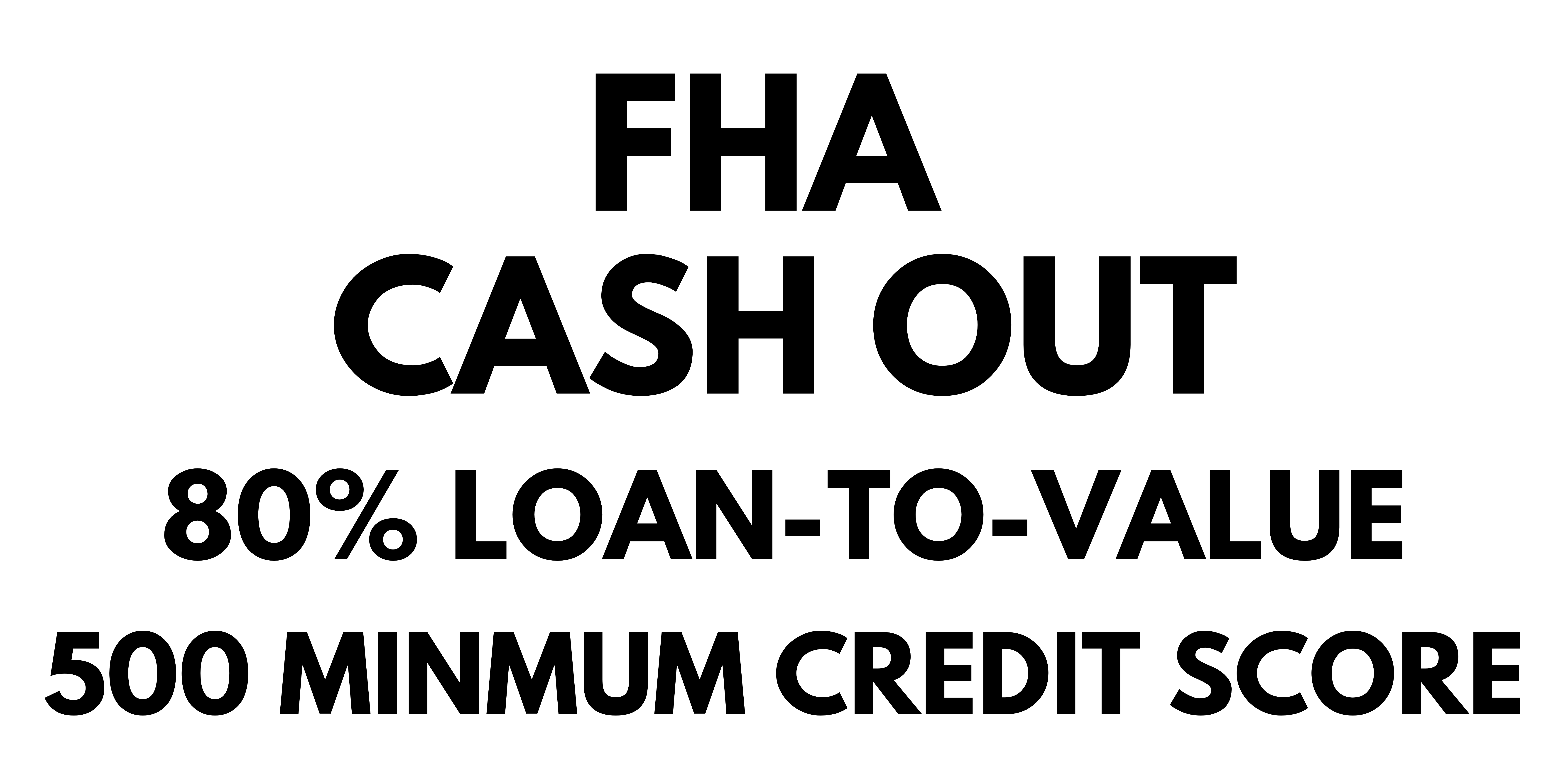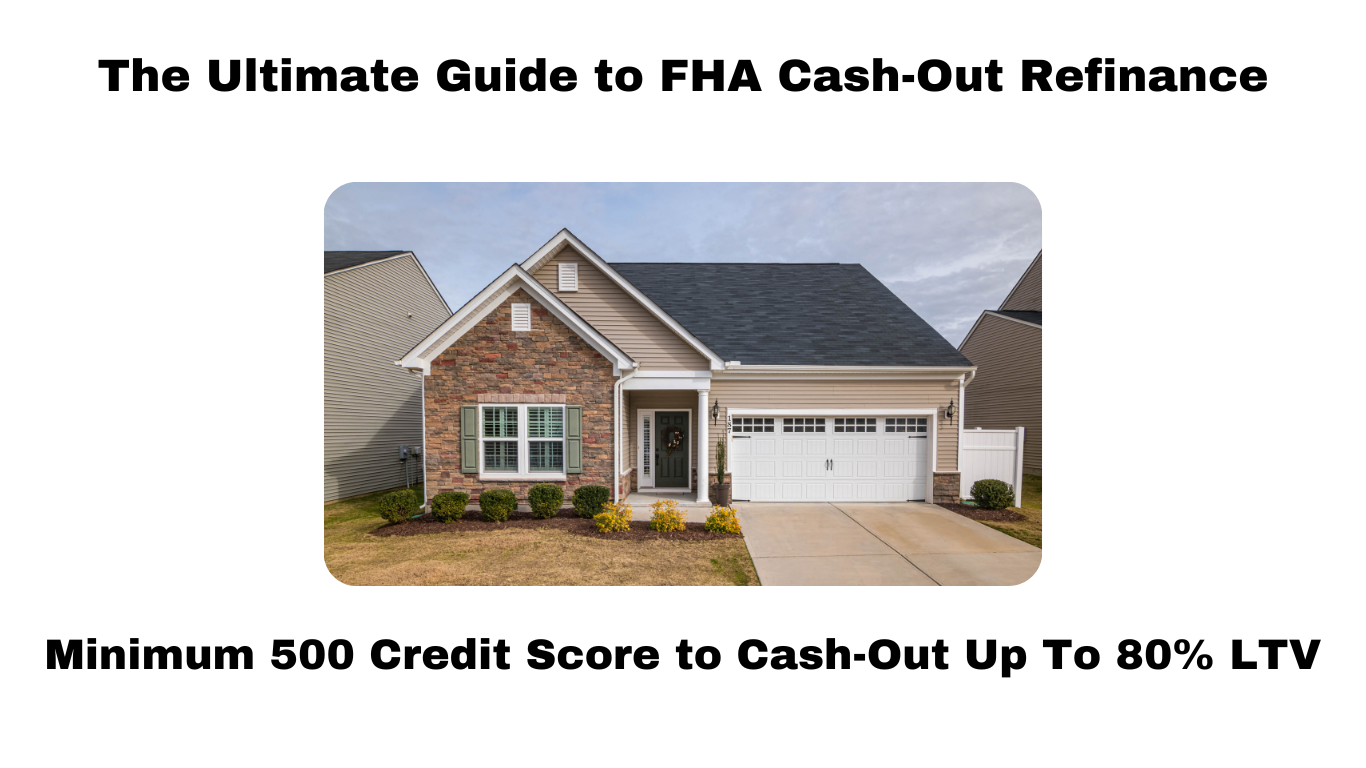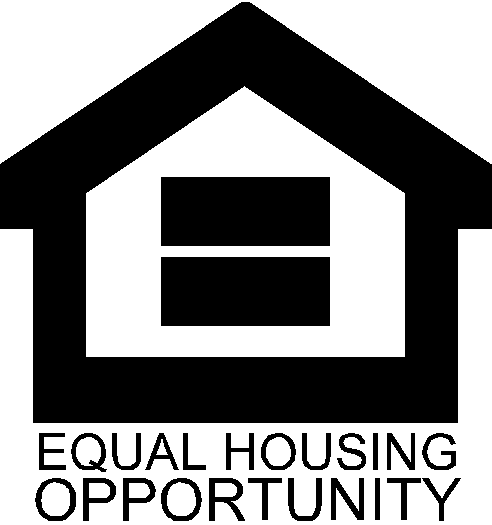Cash Out Refinance to Pay Off Debt: Unlocking Financial Freedom
In today's fast-paced world, managing debt can be a significant challenge. High-interest rates, mounting bills, and the constant stress of financial obligations can feel overwhelming. However, there's a financial strategy that could provide you with much-needed relief and put you on the path to financial freedom – cash-out refinance to pay off debt.
In this detailed guide, we will explore the ins and outs of cash-out refinancing, its benefits, and how it can help you regain control of your finances. We'll cover everything from the basics to expert tips to ensure you have a comprehensive understanding of this powerful financial tool.

What Is Cash Out Refinancing?
Cash out refinancing is a financial strategy that allows homeowners to tap into the equity built in their homes by refinancing their mortgage for an amount greater than what they currently owe. The difference between the new loan and the existing mortgage is given to the homeowner in cash. This cash can then be used for various purposes, one of which is paying off high-interest debt.
How Does Cash-Out Refinancing Work?
To utilize cash out refinance to pay off debt effectively, homeowners need to follow these steps:
1. Assess Your Home Equity
Calculate the current value of your home and subtract your existing mortgage balance to determine how much equity you have available.
2. Evaluate Your Debt
Make a list of all your outstanding debts, including credit card balances, personal loans, and any other high-interest obligations.
3. Choose a Lender
Locate a reputable lender that offers cash out refinancing. Compare interest rates and terms to find the best deal.
4. Apply for the Loan
Submit your application to the chosen lender. They will assess your eligibility based on factors such as credit score, income, and home value.
5. Appraisal and Underwriting
The lender will conduct an appraisal of your home and underwrite your loan application to determine the terms and conditions.
6. Closing
If approved, you'll attend a closing where you'll sign the necessary paperwork. After this, the new loan will pay off your existing mortgage, and you'll receive the remaining funds in cash.

Benefits of Using Cash Out Refinance to Pay Off Debt
Using cash out refinancing as a debt consolidation tool offers several advantages:
1. Lower Interest Rates
Cash out refinance loans typically come with lower interest rates compared to credit cards and personal loans. By consolidating your debt through refinancing, you can significantly reduce the amount of interest you pay over time.
2. Simplified Payments
Managing multiple debts with various due dates and interest rates can be confusing and stressful. With cash-out refinancing, you can combine all your debts into a single, manageable monthly payment.
3. Potential Tax Benefits
In some cases, the interest paid on your mortgage may be tax-deductible. Be sure to consult with a tax professional to understand how this could benefit your specific financial situation.
4. Improved Credit Score
By paying off high-interest debt and making on-time mortgage payments, you can positively impact your credit score over time.
The Cash Out Refinancing Process
Understanding the step-by-step process of cash out refinancing is crucial for a successful application:
1. Determine Your Eligibility
Before proceeding, ensure you meet the lender's requirements, including a minimum credit score, stable income, and sufficient home equity.
2. Calculate Your Home Equity
Estimate the amount of equity available in your home, as this will determine the maximum cash out amount you can request.
3. Gather Required Documents
Prepare necessary documentation, including proof of income, credit reports, and property information, to streamline the application process.
4. Apply for the Loan
Submit your application to your chosen lender. Be prepared for a credit check and appraisal of your property.
5. Review Loan Offers
Evaluate the loan offers you receive, considering interest rates, closing costs, and loan terms.
6. Attend Closing
Once you've accepted an offer, attend the loan closing to sign the final documents and receive your cash-out funds.

Cash Out Refinance to Pay Off Debt
One of the primary reasons people opt for cash out refinancing is to pay off debt. This section explores how you can use this strategy to tackle various types of debt effectively.
Credit Card Debt
Credit cards often carry high-interest rates, making it challenging to pay off the balance. By using cash out refinancing, you can eliminate credit card debt and replace it with a more affordable mortgage payment.
Student Loans
Student loan debt can burden graduates for years. Cash out refinancing allows you to pay off your student loans and replace them with a mortgage payment that may have a lower interest rate.
Medical Bills
Mounting medical bills can put immense pressure on your finances. With cash out refinancing, you can settle medical bills and alleviate financial stress.
Home Improvement
Investing in your home's value can be an excellent use of cash-out funds. You can make home improvements that not only enhance your living space but also increase your property's resale value.
Conclusion
Cash out refinance to pay off debt is a powerful financial tool that can help you regain control of your finances. By consolidating high-interest debt into a more affordable mortgage payment, you can reduce stress, save money, and work towards a debt-free future.
If you're considering cash out refinancing, it's essential to understand the process and consult with financial professionals to make an informed decision. Remember that while this strategy offers many benefits, it should align with your long-term financial goals and budget.

FAQs
Q: Is cash out refinancing a good option for everyone?
A. Yes, cash-out refinancing can be beneficial for homeowners with sufficient equity and the ability to manage a larger mortgage payment. However, it's essential to consider your individual financial circumstances and consult with a financial advisor.
Q: Are there any risks associated with cash out refinancing?
A. While cash-out refinancing offers many advantages, it's crucial to be aware of the potential risks. One significant risk is the possibility of accumulating more debt if you're not disciplined in managing your finances.
Q: How much equity do I need to qualify for cash out refinancing?
A. Most lenders require homeowners to have at least 20% equity in their homes to qualify for cash-out refinancing. However, requirements may vary by lender.
Q: Can I use the cash out funds for any purpose?
A. Yes, you can use the cash-out funds for various purposes, including debt consolidation, home improvements, education expenses, or even starting a business.
Q: Will cash out refinancing affect my credit score?
A. Cash-out refinancing can impact your credit score in several ways. It may initially lower your score due to the credit check and new loan application, but over time, making on-time mortgage payments can improve your credit profile.
Q: How long does the cash out refinancing process typically take?
A. The duration of the cash-out refinancing process varies, but it often takes between 30 to 45 days from application to closing. Delays can occur due to factors such as appraisal and underwriting.
Call us 888-958-5382
www.MORTGAGE-WORLD.com LLC is an online mortgage company specializing in FHA loans for first time home buyers.
We look forward to working with you.



Recent Articles
-
Mortgage Rates August 5
Aug 05, 24 04:10 PM
Mortgage Rates August 5, 2024. Rates have gone down recently. Lower rates equals lower mortgage payment. -
Mortgage Rates August 5 2024
Aug 05, 24 03:55 PM
Mortgage Rates August 5 2024 -
Today's FHA Rates 5.00% & 5.875% Conventional Minimum 700 Credit Score
Aug 05, 24 03:48 PM
Today’s historically low 30 year fixed interest rates make now the perfect time to purchase a new home or refinance To be approved at the lowest mortgage rates, you do not need to have the highest cre…

Call Now, Our Staff is Available!
800.516.9166

